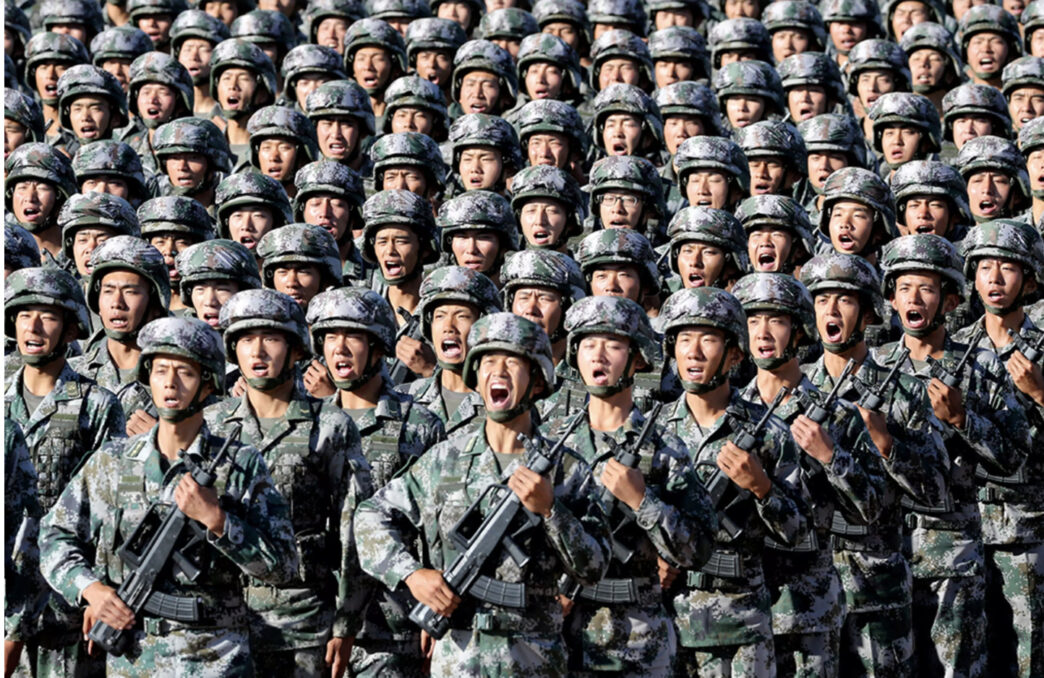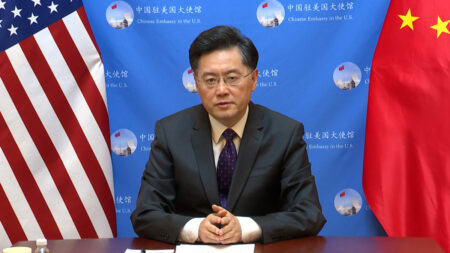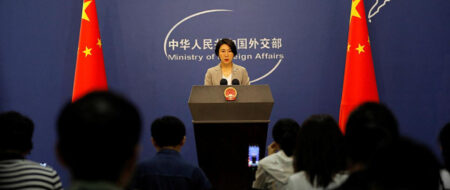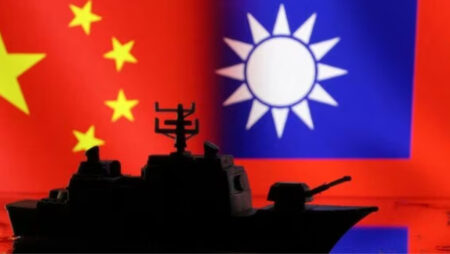China’s latest eight-part documentary, “Chasing Dreams,” aired on state broadcaster CCTV, has sent shockwaves across the region. The series commemorates the 96th anniversary of the People’s Liberation Army (PLA) and offers a troubling glimpse into the army’s preparation for a potential attack on Taiwan. Featuring military drills and testimonials from devoted soldiers, the documentary highlights China’s unyielding claim over Taiwan and serves as a propaganda tool to fan rising Chinese nationalism.
Table of Contents
PLA’s Bold Pledges to Sacrifice Lives
“Chasing Dreams” showcases PLA soldiers expressing their unwavering loyalty and readiness to make the ultimate sacrifice if a conflict with Taiwan were to arise. Testimonials from various divisions reveal an alarming willingness to lay down their lives for the advancement of China’s territorial ambitions. From frogmen vowing to clear naval mines with their own bodies to fighter pilots pledging to be the last missile rushing toward the enemy, these expressions of dedication raise concerns about the potential for an escalation of hostilities.
China’s Assertive Stance on Taiwan
China’s claim over Taiwan as its own territory remains a contentious issue, with Beijing asserting its right to take the island by force if necessary. The materials featured in the documentary underscore China’s military confidence in its ability to confront Taiwan and, implicitly, challenge its ties with the United States. Although the U.S. does not formally recognize Taiwan as a sovereign nation, it has pledged to assist the island in defending itself in the event of an invasion, further straining relations between China and the U.S.

Escalating Tensions in the Taiwan Strait
In response to Taiwan’s diplomatic exchanges with the U.S., China has been dispatching the Shandong, one of its aircraft carriers, to the Taiwan Strait with increasing frequency. The PLA has also been known to have crossed the strait’s median line, an informal demarcation zone, on multiple occasions. These provocative actions further fuel the rising tensions between China and Taiwan, raising concerns about the potential for a military confrontation in the region.
U.S. Military Aid Package for Taiwan
In light of the mounting threat from China, the White House recently announced a significant $345 million military aid package for Taiwan. Drawing from lessons learned from its assistance to Ukraine, the move signifies the U.S.’s commitment to supporting Taiwan’s defense capabilities. However, this aid package has not been well-received by Beijing, and critics fear it may exacerbate tensions in the region.
Propaganda as a Tool of Nationalism
The release of “Chasing Dreams” underscores the role of propaganda in fanning nationalism within China. The carefully curated images and testimonials showcased in the documentary aim to boost morale and confidence in the PLA while reinforcing the government’s stance on Taiwan. Such propaganda materials not only impact domestic sentiments but also send a clear message to Taiwan and the international community about China’s military ambitions.
The Impact of Escalating Rhetoric
The escalating rhetoric and military posturing in the region have significant implications for regional stability and global security. As China continues to assert its territorial claims and Taiwan stands firm in its quest for self-determination, any miscalculations or misunderstandings could lead to dire consequences. The international community closely watches developments in the region, with concerns over potential instability and the risk of a large-scale conflict.
Finding Paths to Peace and Diplomacy
Amid escalating tensions, finding paths to peaceful resolution and diplomacy becomes more critical than ever. Regional stakeholders, including the U.S., must engage in constructive dialogue to de-escalate tensions and prevent any unintended military confrontations. Respect for international law, recognition of Taiwan’s unique political status, and adherence to peaceful negotiations should guide the way forward, ensuring stability and security in the Asia-Pacific region.
In conclusion, the release of “Chasing Dreams” sheds light on China’s military preparations and ambitions concerning Taiwan, while stoking nationalist sentiments within the country. As tensions continue to rise, the international community must prioritize diplomatic efforts to de-escalate the situation and preserve peace in the region. Resolving the complex issue surrounding Taiwan will require careful navigation and cooperation from all parties involved to prevent a potential military conflict that could have far-reaching consequences.













